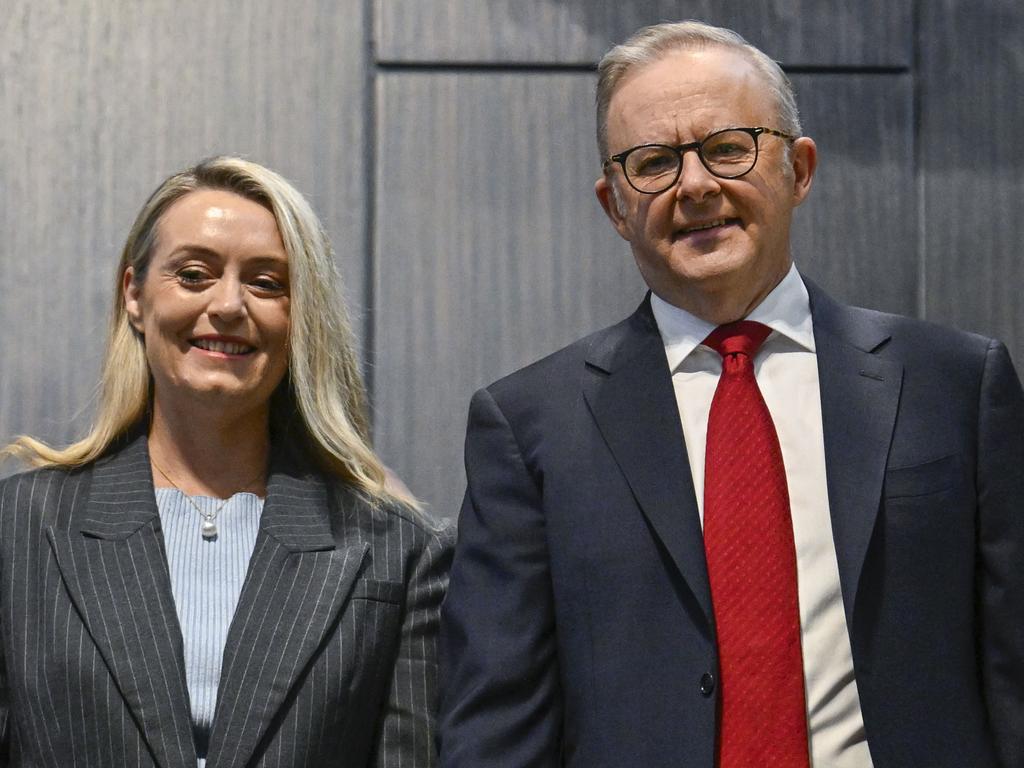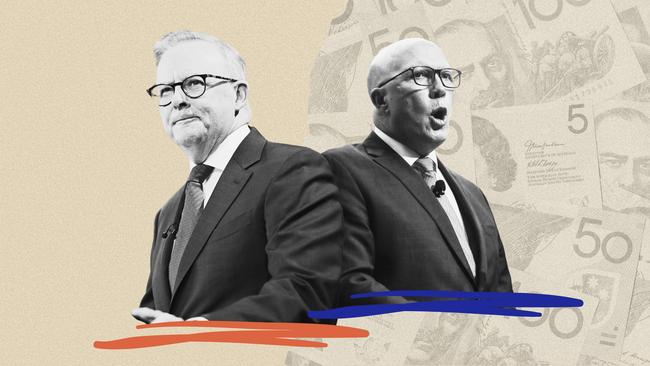
This is not an election campaign that anyone can take much pride in. There’s the frustration factor inherent in an election where almost half the electorate thinks the government deserves to lose but just over half thinks the opposition isn’t ready to win: an unedifying choice of the unworthy versus the unready.
If Anthony Albanese becomes the first prime minister to be returned since John Howard, 21 years back, it will be the triumph of low politics over high principle. If, against expectations, Peter Dutton emerges as PM, it will be despite a campaign that was low focus, at least until the final week.
Unlike 2022, when the campaign media pack was surprisingly critical of the then would-be PM, this time it has largely lapped up his Dutton critique while being relentlessly sceptical of almost everything the Opposition Leader has said.
And as for us, the voting public, we’ve been content to grab the handouts on offer from both sides in the hope that some other taxpayer – or our children and grandchildren – will have to fund them.
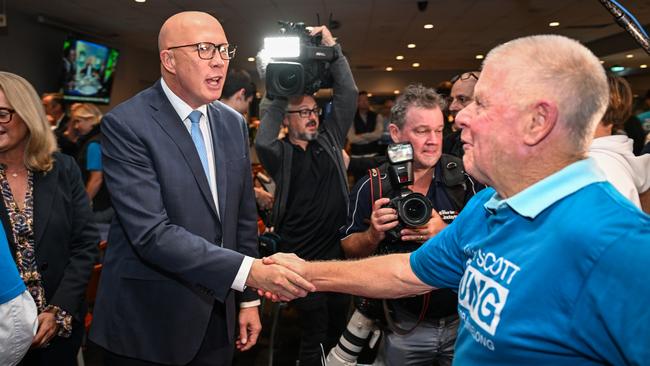
Almost entirely absent has been the high-mindedness that once characterised our politics at its best. Another campaign full of lies and spin, and a voting public disengaged and with little interest in chasing down the facts save for what they scroll over in two seconds flat. Is this really what passes for an election campaign in 2025?
As for Labor, its main offering is a tax cut of 70c a day in 15 months that just adds to our trillion-dollar debt and nothing but red ink ahead for a decade.
As well, there’s more dependency on government by making government part-owner of the homes people buy with taxpayer help and government the insurer of their repayments (versus the Liberal scheme to give first-home buyers temporary access to their own superannuation money for a deposit).
And it’s Labor’s own policies that are at least partly to blame for the cost-of-living crisis: the renewables fixation that’s driving up power prices; the spending addiction that’s keeping interest rates higher for longer; the union donations payback that’s making businesses less productive and harder to manage; and the green obsession that’s making new resource projects almost impossible.
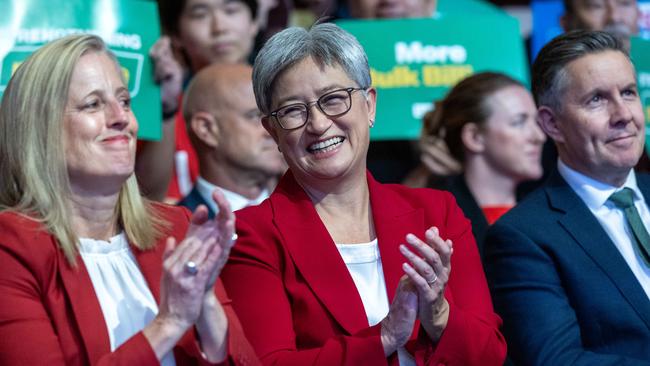
Yet from the Liberals’ perspective, the problem with declaring this is a cost-of-living election is that it has made it all about providing relief, not about who or what has caused or exacerbated the problem – and in any bidding war on handouts, Labor always starts as favourite.
Still, Dutton hasn’t abandoned the fundamental Liberal conviction that countries can’t subsidise their way to success or tax their way to prosperity. And his other commitments – to cut immigration by at least 25 per cent; to officially fly just one flag, not three; and to raise military spending to 2.5 per cent of GDP within five years and to 3 per cent within a decade – are all worthy pitches built on Liberal values. Plus there’s this to be said for the opposition’s key commitments: at least they’re targeted and temporary. The 50 per cent cut in fuel tax lasts for one year only.
Likewise, the $1200 low and middle-income supplement is a one-off. And the tax deductibility of first-home buyers’ mortgage repayments lasts only for five years. In Dutton’s pitch to “keep the dream of home ownership alive”, there’s at least an echo of Bob Menzies’s celebration of “homes material … homes human … and homes spiritual”.
Indeed, this election has turned out to exemplify the perennial democratic weakness that Menzies identified in his “Forgotten People” broadcast, for “getting ourselves on to the list of beneficiaries and removing ourselves from the list of contributors”.
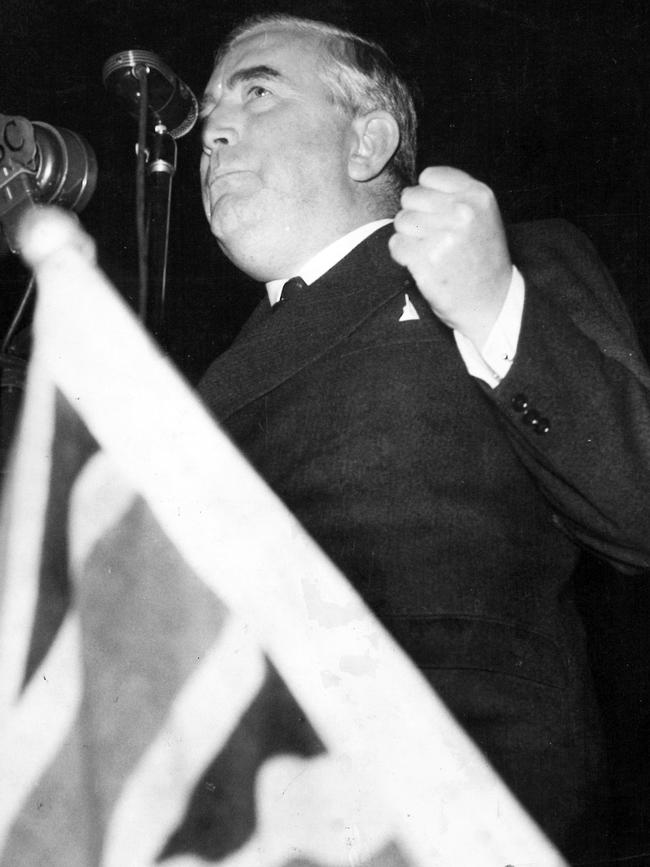
In Dutton’s “aspirational goal” to end taxation by stealth through indexing the tax brackets, though, there’s at least some recognition of those who actually fund the government as well as those who draw down on it; Menzies’s “lifters” as well as the “leaners”.
It’s hardly surprising that with no real record to run on and no plan for the future except more of the same, the Albanese government has settled on a campaign of lies against its opponent that seeks to make the opposition unelectable, even though it’s the government that has broken its key election commitments to cut power bills, raise real wages and lower mortgage costs.
It’s this brazen mendacity that’s actually the most singular feature of this campaign and what makes it such a contrast with almost all previous elections. Even Bill Shorten’s 2016 “Mediscare” fiction was a late one-off tactic rather than part of a comprehensive falsification of Labor’s opponent.
This time there has been a wholesale demonisation of Dutton based on lies, plus a blatant refusal to admit to any damaging facts about the government. There has been the constant claim that the Opposition Leader, as health minister, cut $50bn out of health spending, even though the budget papers prove it rose substantially every year. And the endlessly repeated insistence that building seven nuclear power plants will cost $600bn, even though this is a shamelessly sexed-up claim from a Labor-heavy renewables industry lobby group.
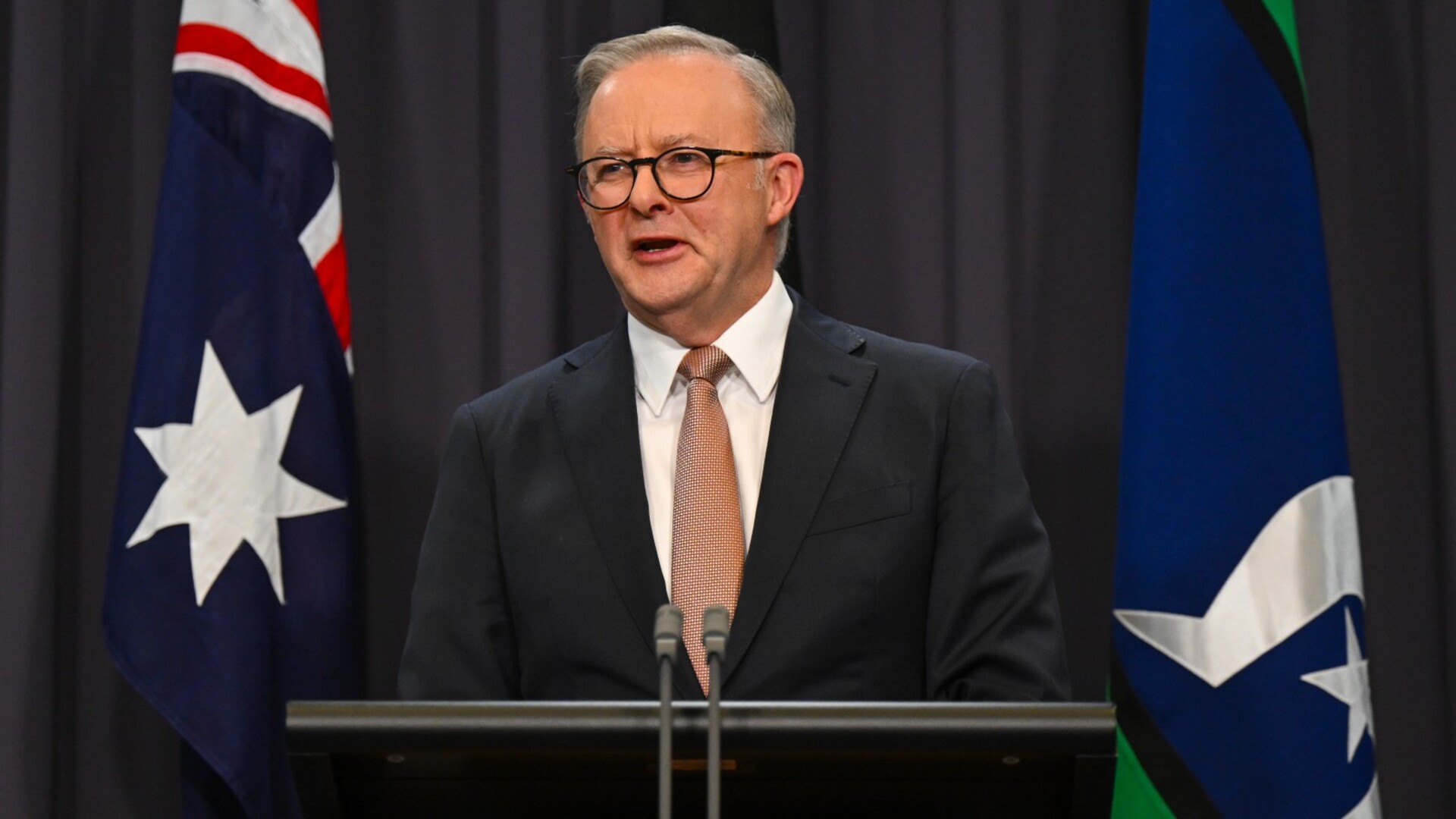
The PM continues to insist his government has turned a $78bn Coalition deficit into two successive Labor surpluses, despite this being a forecast, not the actual budget outcome, and the surpluses being the accidental result of a commodity price boom.
He denied the truth about the Russian request to fly bombers out of an Indonesian base in Papua and has refused a briefing for the opposition, despite caretaker conventions. He couldn’t even be straight about his notorious fall from a stage.
Yet having broken repeated pledges that “my word is my bond” on those stage-three tax cuts, the PM now expects to be believed when he says there are no plans to remove negative gearing and to extend the taxation of unrealised capital gains.
With just days to go, and after millions have already voted, Penny Wong’s admission that the voice would be back should surprise no one because there is no democratic principle Labor won’t trash, no betrayal it isn’t willing to countenance if it means holding on to power.
Having conned voters into electing it, the Albanese government has doubled down on deception in its re-election bid. Only what does this say about voter gullibility if it works? Fool me once, shame on you; fool me twice, shame on me.


